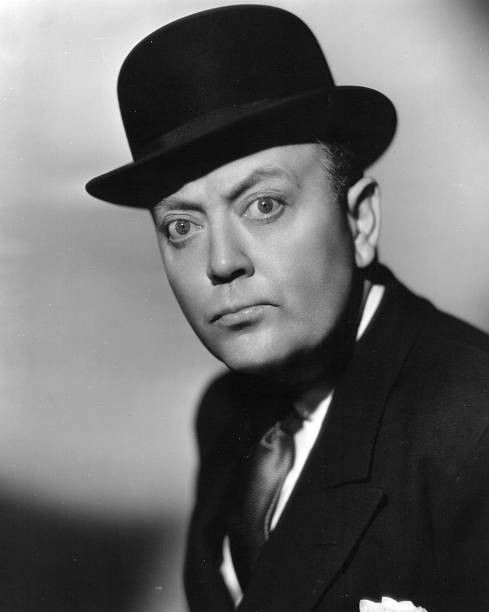#Raymond Walburn
Text


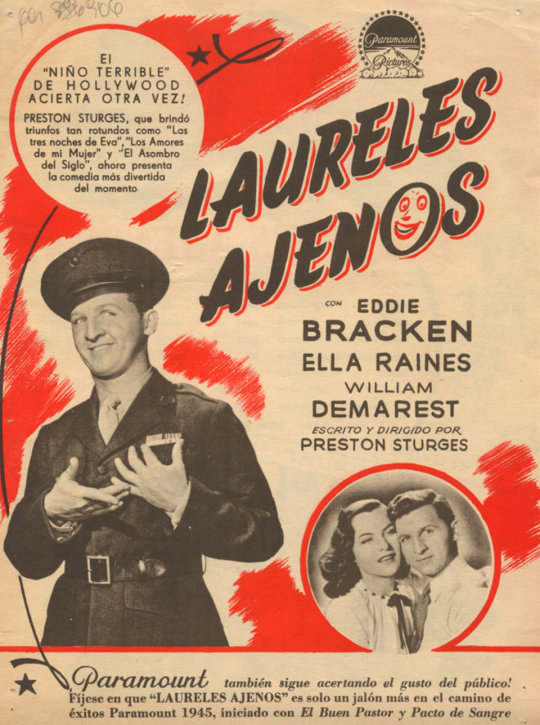
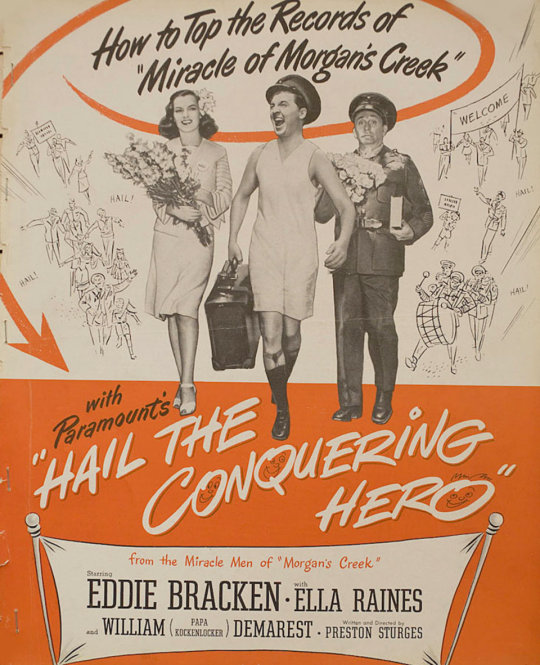
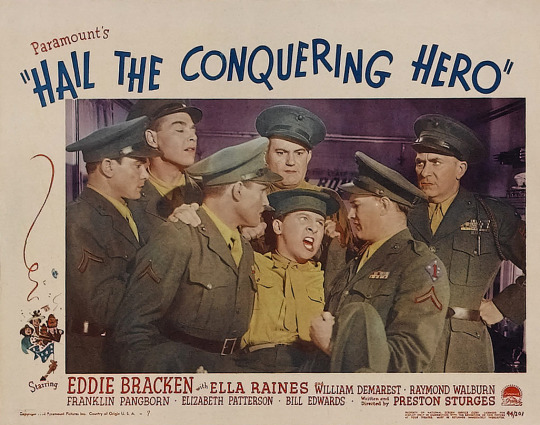



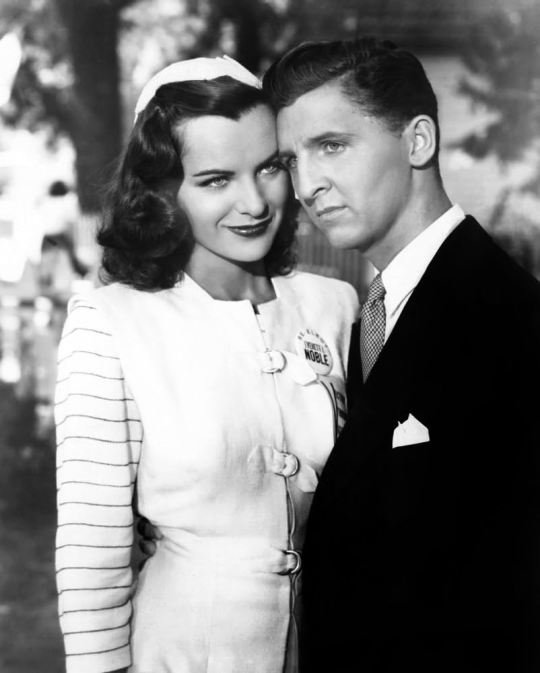
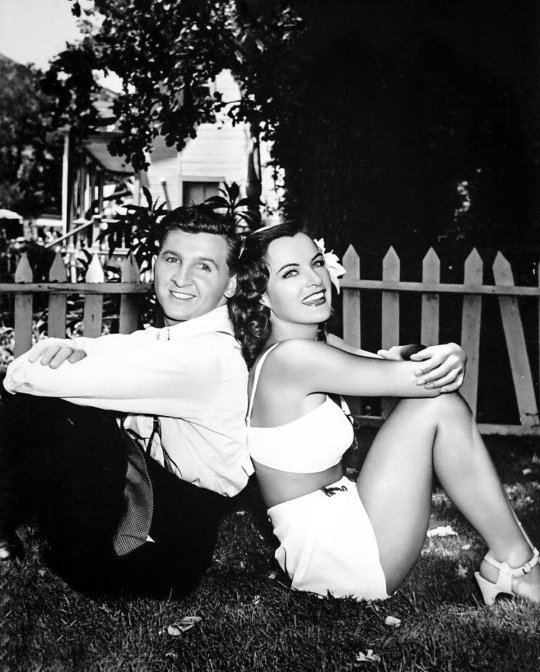
Hail the Conquering Hero (1944) Preston Sturges
September 5th 2023
#hail the conquering hero#1944#preston sturges#eddie bracken#ella raines#william demarest#raymond walburn#georgia caine#franklin pangborn#freddie steele#jimmy conlin#esther howard#al bridge#bill edwards#harry hayden#elizabeth patterson
9 notes
·
View notes
Text
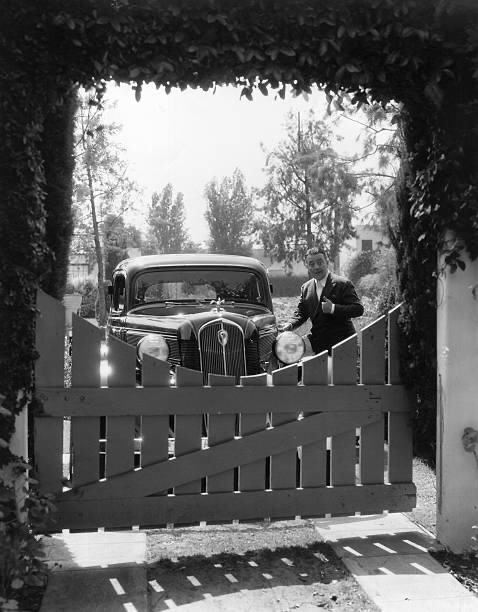
Character actor Raymond Walburn at the garden gate of his home in California
6 notes
·
View notes
Text
Broadway Melody of 1938, 1937, Is Playing on TCM on June 3 (USA)
Broadway Melody of 1938, 1937, Is Playing on TCM on June 3 (USA)
Broadway Melody of 1938, 1937, is playing on Turner Classic Movies on Friday, June3 at 3 p.m. est The film cost $1,588,000 and made a profit of $271,000 or $4,609,188.57 in today’s money.
Broadway Melody of 1938 is one of those pure escapist type films that folks in the Thirties paid their money to see. It’s a nice film combining both a backstage and a racetrack story with one of the most…

View On WordPress
#1930s#Binnie Barnes#Broadway Melody of 1938#Buddy Ebsen#Charley Grapewin#Eleanor Powell#George Murphy#glamor#Golden Era#hollywood#Igor Gorin#Judy Garland#matinee idol#MGM#nacio herb brown#Raymond Walburn#Robert Benchley#Robert Taylor#Sophie Tucker#TCM
2 notes
·
View notes
Photo

Hail the Conquering Hero (Preston Sturges, 1944)
Cast: Eddie Bracken, Ella Raines, William Demarest, Raymond Walburn, Franklin Pangborn, Elizabeth Patterson, Georgia Caine, Al Bridge, Freddie Steele, Bill Edwards, Harry Hayden, Jimmy Conlin, Jimmie Dundee. Screenplay: Preston Sturges. Cinematography: John F. Seitz. Art direction: Haldane Douglas, Hans Dreier. Film editing: Stuart Gilmore. Music: Werner R. Heymann.
It must have taken real nerve to make a film that pokes fun at patriotism, mother love, small towns, political campaigns, and the Marines in the middle of World War II. Preston Sturges's film begins in a small nightclub, where a singer (Julie Gibson) and her backup group of singing waiters launch into a stickily sentimental song, "Home to the Arms of Mother" (music and lyrics by Sturges), during which we see Woodrow Lafayette Pershing Truesmith (Eddie Bracken) drowning his sorrows. When a group of six Marines on leave after having fought at Guadalcanal enters the bar, Woodrow buys a round for them, and is prodded into telling them his sad story: He joined the Marines, trying to follow in the footsteps of his father, a Marine who died in World War I, but was discharged because of chronic hay fever. Instead of returning home to the arms of mother, he went to work in a shipyard and arranged for a friend to send his letters to her from overseas, disguising the fact that he was no longer a Marine. One of the men, Sgt. Heppelfinger (William Demarest), learns that Woodrow's father was his old buddy who fought with him at Belleau Wood, while another, Bugsy (Freddie Steele), is appalled that Woodrow hasn't been home to see his mother since the start of the war. So the Marines collude to take an extremely reluctant Woodrow back to his hometown and pretend that he's a war hero who has just been discharged. Naturally, the plan backfires spectacularly when the whole town joins in the celebration and even railroads Woodrow into running against the corrupt mayor (Raymond Walburn). Speed is of the essence in a farce like this, because if anyone ever gave Woodrow a moment to talk, the whole thing would collapse like a soufflé. On the other hand, too much fast talk can be wearying, so Sturges introduces a romantic subplot: Feeling that he can never return home, Woodrow has written his girlfriend, Libby (Ella Raines), that he has met someone else, so Libby is now engaged to Forrest Noble (Bill Edwards), the son of the town's corrupt mayor. Sturges gives them a long walk-and-talk tracking scene in which Libby, confused by her revived feelings for Woodrow, tries to sort things out with Forrest, but to no avail. It's a funny, beautifully written scene, but it doesn't quite work because neither Raines nor Edwards is up to the acting demands it puts on them. Bracken, however, is wonderful, as are Demarest, Steele, Walburn, and other members of Sturges's usual crew of brilliant character actors, including Franklin Pangborn as the harried planner of the celebration and Jimmy Conlin as the town judge. This was the last film Sturges made under his Paramount contract, which he ended because the studio interfered: It objected, perhaps rightly, to Ella Raines's lack of star power, and took the film out of Sturges's hands and edited it. After a couple of disastrous previews of the studio version, however, Sturges was called back in for rewrites and some new scenes. The revised Sturges version was a hit, and earned him an Oscar nomination for best screenplay.
1 note
·
View note
Text
MOVIE QUOTE OF THE DAY:
“You can all stay here until Hoboken freezes over.”
Raymond Walburn in Christmas in July
#ChristmasInJuly #PrestonSturges #RaymondWalburn #Moviequotes #MovieQuoteOfTheDay

0 notes
Text
The count of monte cristo rotten tomatoes

The count of monte cristo rotten tomatoes trial#
Dantès reveals his true identity to Danglars, who is left penniless and insane. When the tip proves to be false, Danglars is bankrupted. Greed leads him to invest all of his money on the next report, just as Dantès had planned. When these turn out to be infallibly profitable, Danglars bribes a man to send him copies of messages to Dantès. Dantès uses his services to buy and sell shares, sharing tips he receives from his informants. Next is Danglars, now the most influential banker in Paris. Dantès reveals his identity and they engage in a duel Dantès wins, but spares Mondego, who returns home and commits suicide. Unaware of the count's role in his disgrace, Mondego goes to him for advice. Dantès arranges a ball to "honor" his enemy, then arranges to have him exposed publicly as the one who betrayed Ali Pasha to his death at the hands of the Turks. While the French ambassador to Albania, Mondego gained renown for his bravery in an unsuccessful defense of Ali Pasha. Dantès "rescues" the younger man in order to gain entry into Paris society, using his purchased title of Count of Monte Cristo.��irst to be brought to justice is Mondego. To begin, he arranges to have Albert (Mercedes and Mondego's son) kidnapped and held for ransom. With a fortune at his command, he sets in motion his plans for revenge. He frees himself and is picked up by a smuggling ship.ĭantès later follows Faria's directions and finds the treasure on the uninhabited island of Monte Cristo. The body is sewn into a shroud, but while the undertaker is away, Dantès substitutes himself for the corpse undetected. Before he dies, he bequeaths a vast hidden treasure to his protégé (Faria's enemies had tortured and imprisoned him in an unsuccessful attempt to extract its location). However, as they near their goal, a cave-in fatally injures the old man. In the meantime, he starts educating Dantès. The two join forces Faria calculates it will take five more years to finish. Heggie), a fellow prisoner, breaks into his cell through a tunnel he has been digging. Deceived, she gives in to her mother's deathbed wish and marries Mondego.Įight years of solitary confinement follow for Dantès. When Napoleon returns to France, giving Dantès' friends hope for his release, de Villefort signs a false statement that he was killed trying to escape, which Mondego shows to Mercedes.
The count of monte cristo rotten tomatoes trial#
De Villefort consigns Dantès without trial to a notorious prison, the Château d'If, on the false testimony of Danglars. However, he, Danglars, and de Villefort all stand to gain from keeping Dantès imprisoned: Mondego is in love with Dantès' fiancée, Mercedes (Landi) Danglars wants to be promoted captain in Dantès' place and the man who accepted the letter turns out to be de Villefort's father ( Lawrence Grant). (Calhern), is tipped off by an informer, the second officer, Danglars ( Raymond Walburn), and has both men arrested after the exchange.ĭantès' friend Fernand Mondego ( Sidney Blackmer) accompanies him to the jail. However, the city magistrate, Raymond de Villefort, Jr. Before he dies of a sickness, the captain entrusts the task to his first officer, Edmond Dantès (Donat). A letter from the exiled Napoleon is given to the ship's captain to deliver to a man in Marseille. In 1815, a French merchant ship stops at the island of Elba. Robert Donat and Elissa Landi in The Count of Monte Cristo

0 notes
Text

Raymond Walburn-Bonita Granville-Melvyn Douglas "Third finger, left hand" 1940, de Robert Z. Leonard.
6 notes
·
View notes
Text
I’LL LOVE YOU ALWAYS
March 20, 1935

Directed by Leo Bulgakov
Writers: Lawrence Hazard (story), Vera Caspary, Sidney Buchman
Produced by Everett Riskin for Columbia Pictures
Synopsis ~ Actress Nora Clegg marries Carl Brent, an unemployed young engineer, whose estimation of his worth and ability keeps him from getting a job. He finally acquires a position that will require him to go to Russia for a period of time, while Nora goes back to the stage during his absence. But he loses out on the job at the last minute, and rather than tell Nora he has failed again, he steals money from his prospective employer to lavish on Nora before his ‘supposed’ departure. His goes to jail and hides the truth from Nora by having an acquaintance mail his letters from Russia. He then finds out that Nora is pregnant.
PRINCIPAL CAST
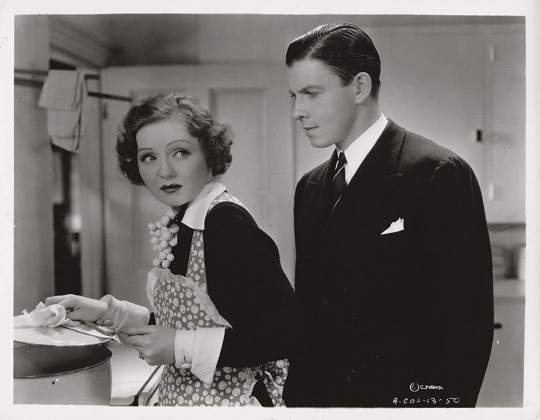
Nancy Carroll (Nora Clegg) was nominated for an Oscar in 1930 for The Devil’s Holiday. She also appeared with Lucille Ball in Jealousy (1934).
George Murphy (Carl Brent) appeared with Lucille Ball in Jealousy and Kid Millions, both in 1934. They also were in A Girl, A Guy, and a Gob in 1941, as well as two radio adaptations of the film. In 1959, Murphy served as guest host of “The Westinghouse Desilu Playhouse” when Desi Arnaz took a role in his own anthology series. He was also a performer in “The Desilu Revue” aired in December 1959. As the host of “MGM Parade”, he interviewed Lucy and Desi in February 1956.
Raymond Walburn (Charlie) previously appeared with Lucille Ball in Broadway Bill (1934), Jealousy (1934), and Lover Come Back (1946).
Arthur Hohl (Jergens) previously appeared with Lucille Ball in Bulldog Drummond Strikes Back (1934), Jealousy (1934), and The Whole Town’s Talking (1935).
Jean Dixon (Mae Waters) would also appear with Lucille Ball in Joy of Living (1938).
Robert Allen (Joe) previously appeared with Lucille Ball in Broadway Bill (1934) and Jealousy (1934).
Harry Beresford (Mr. Clegg) would appear with Lucille Ball in Follow The Fleet (1936).
Paul Harvey (Sandstone) appeared in seven films with Lucille Ball. He played the art critic in “Lucy the Sculptress” (ILL S2;E15).
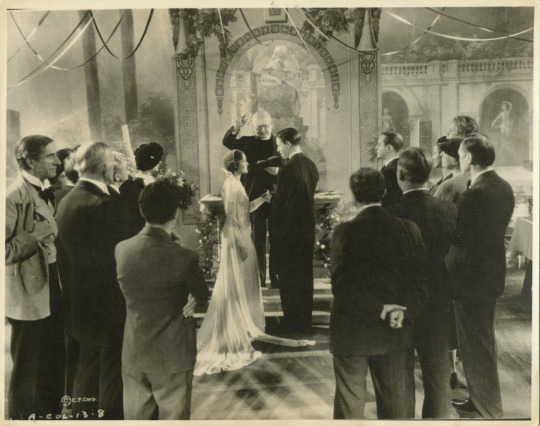
UNCREDITED CAST
Lucille Ball (Lucille) appears in her 20th feature film since coming to Hollywood in 1933.
Eadie Adams...Singer
Irving Bacon (Theater Manager) did seven films with Lucille Ball before playing Mr. Willoughby in in “The Marriage License” (1952) and Will Potter in “Ethel’s Hometown” (1955).
Eddie Baker...Doorman
Elaine Baker...Sandstone's Secretary
John Beck...Ghost
Yvonne Bertrand...Operator
Stanley Blystone...Bill Collector
Sven Hugo Borg...Hamlet
Lynton Brent...Laertes
Helen Brown...Worker
Steve Clark...Bill Collector
Claudia Coleman...Francine
Gino Corrado...Waiter
D'Arcy Corrigan...Waiter
Pearl Eaton...Gertrude
Vessie Farrell...Jenny
Budd Fine...Furniture Man
Sam Flint...First Business Man
Mary Foy...Kitty
Frankie Genardi...Shoeshine Boy
Adda Gleason...Manager
Grace Goodall...Sarah
Roger Gray...Foreman
Howard Hickman...Dean
Samuel E. Hines...Bank Teller
Alfred P. James...Canby
Ethan Laidlaw...Cab Driver
W.E. Lawrence...Furniture Salesman
Edward LeSaint...Minister
Otto Malde...Steward
Frank Marlowe...Bellhop
Adrian Morris...Pigface
Bruce Randall...Waiter
Jack Richardson...Bartender
Billie Van Every...Mary
John Paul Jones, Moselle Kimbler, Lon Poff, Bert Starkey, Charles Marsh, Elaine Waters, Gay Waters
“LOVE” TRIVIA
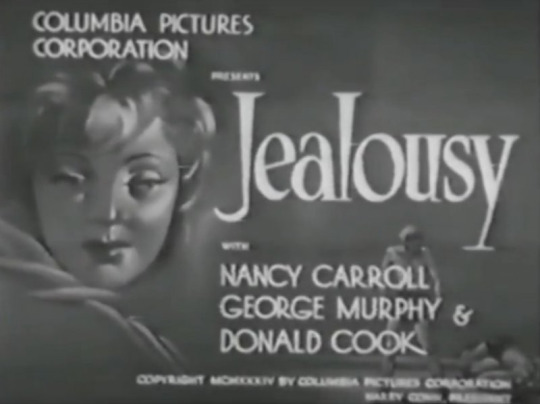
All but three of the principal cast members also appeared with Lucille Ball in Jealousy in 1934.
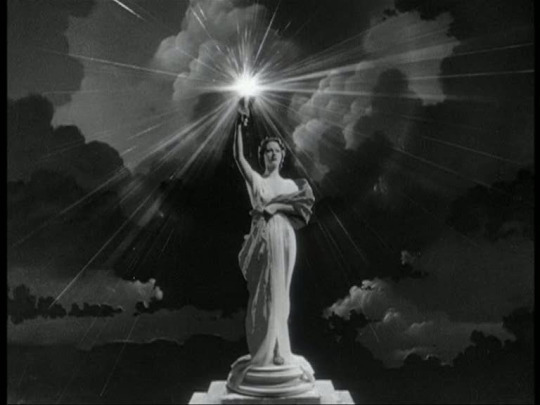
During her brief period at Columbia, Lucille Ball logged in miniscule roles in eight feature films and three shorts. It is fair to say that Columbia and her torch got more screen time than Lucille!
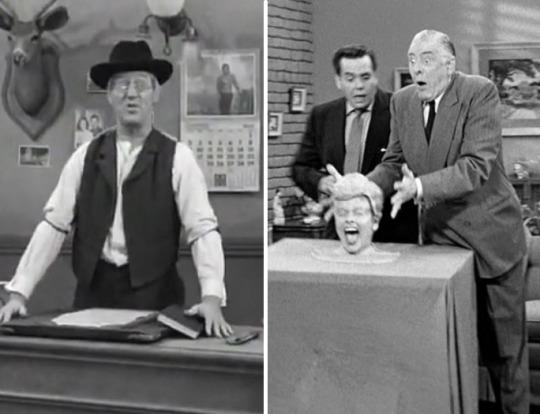
Irving Bacon (Theatre Manager) and Paul Harvey (Sandstone) were the only two cast members to later appear on “I Love Lucy”.
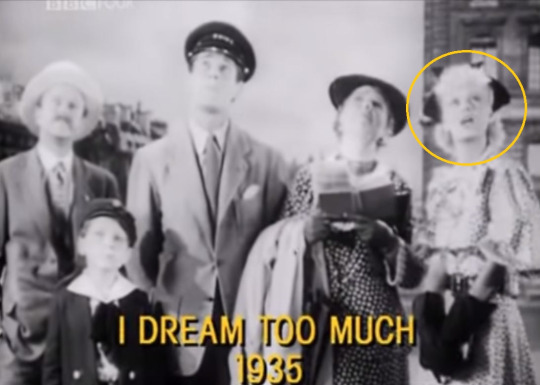
This is just one of 13 films (including three shorts) featuring Lucille Ball to be released in 1935. All except I Dream Too Much were uncredited:
Behind the Evidence (Secretary)
Carnival (Nurse)
Hooray For Love (Chorine)
The Whole Town's Talking (Bank Employee)
Roberta (Fashion Model)
I'll Love You Always (Lucille)
Old Man Rhythm (College Girl)
Top Hat (Flower Clerk)
The Three Musketeers (Extra)
Foolish Heart - short (Hat Check Girl)
His Old Flame - short
A Night At The Biltmore Ball - short (Lucille Ball)
I Dream Too Much (Gwendolyn Dilley) - Lucille Ball’s first on screen credit
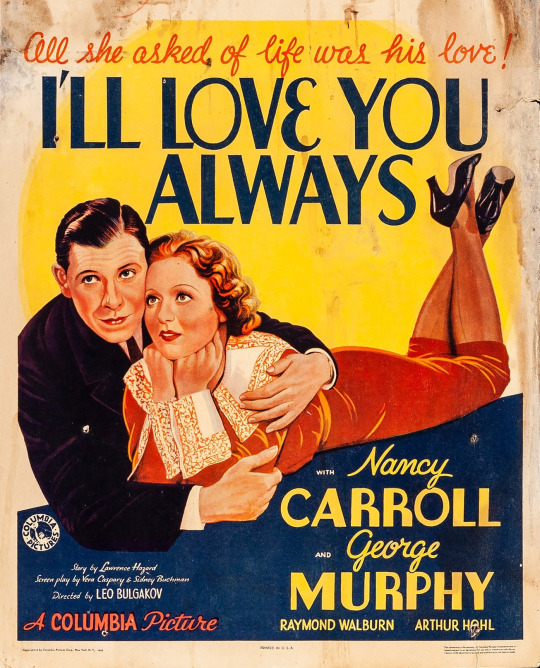
#Lucille Ball#I'll Love You Always#Columbia Studios#George Murphy#Nancy Carroll#Irving Bacon#Leo Bulgakov#Arthur Hohl#Raymond Walburn#Paul Harvey#1935
2 notes
·
View notes
Photo
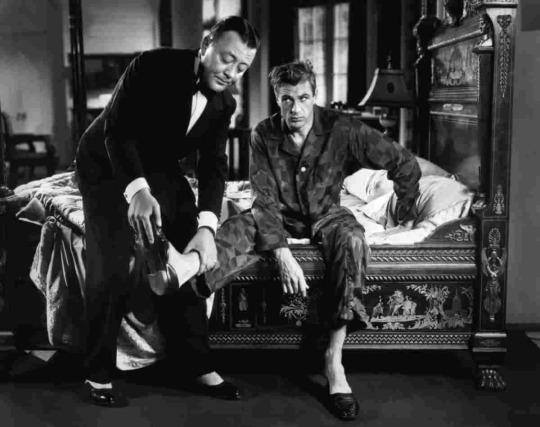
Gary Cooper & Raymond Walburn in ‘Mr. Deeds Goes to Town’ the 1936 romantic comedy film directed by Frank Capra.
#gary cooper#frank capra#raymond walburn#1930s#classic hollywood#hollywood icons#hollywood stars#hollywood greats#romantic comedy film#hollywood actors#mr. deeds goes to town
29 notes
·
View notes
Photo

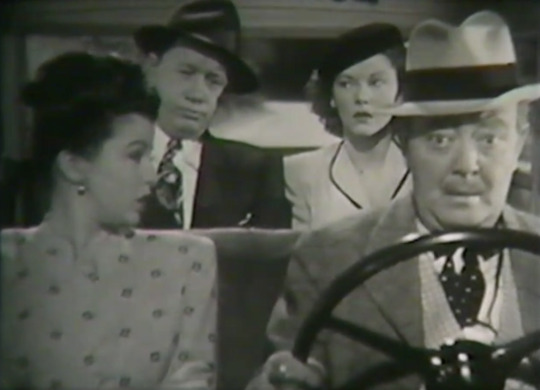
Eddie Acuff and Raymond Walburn are character actor icons of the 1930s and 40s
7 notes
·
View notes
Photo

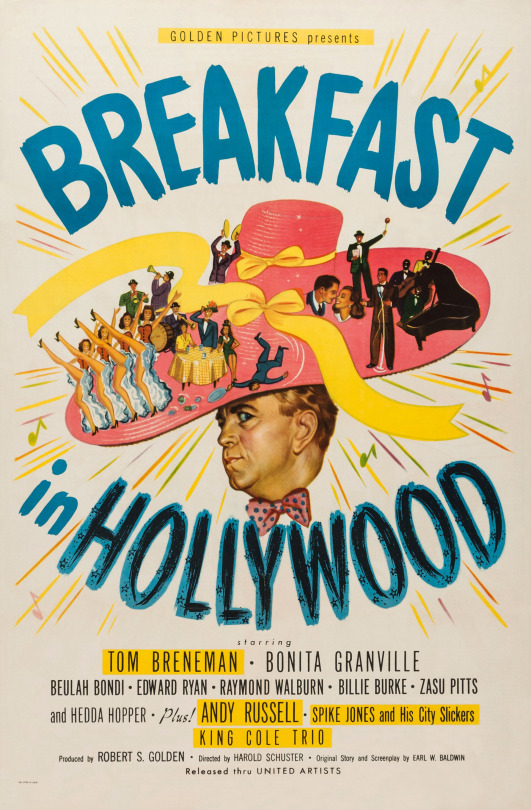
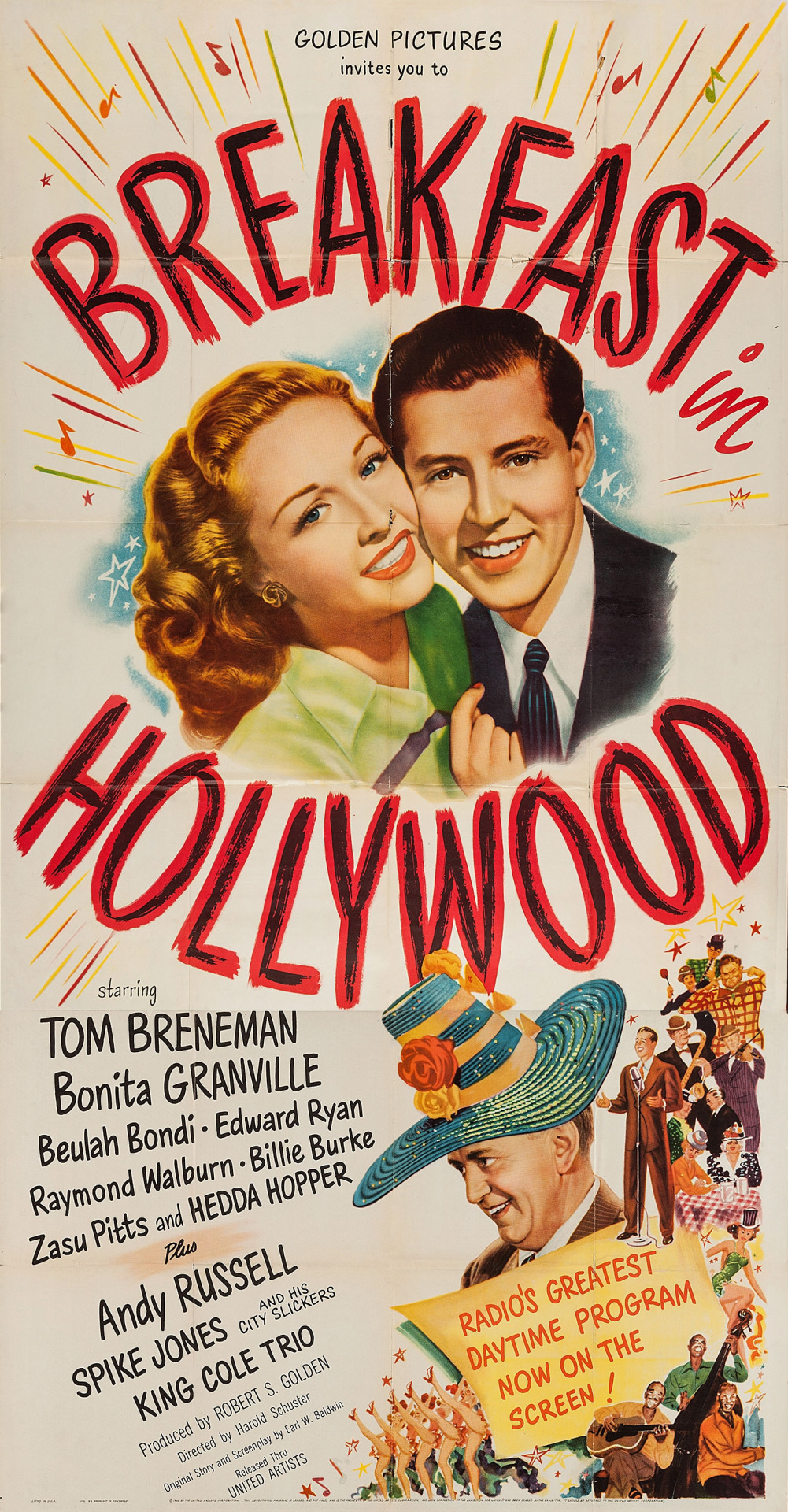
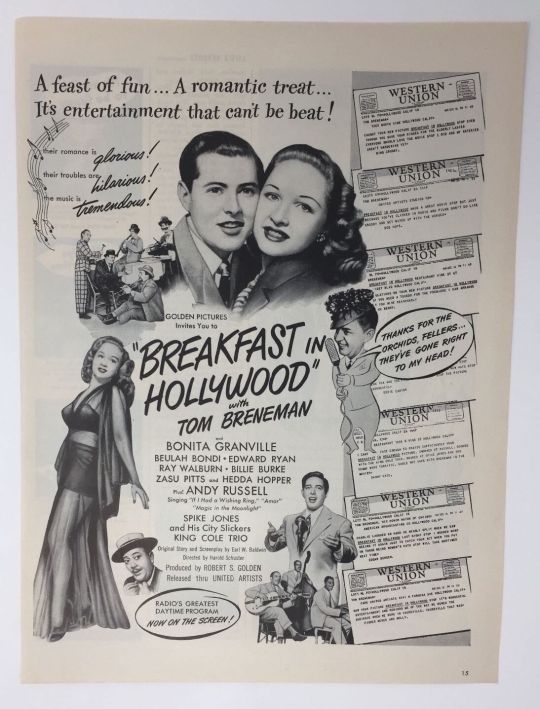
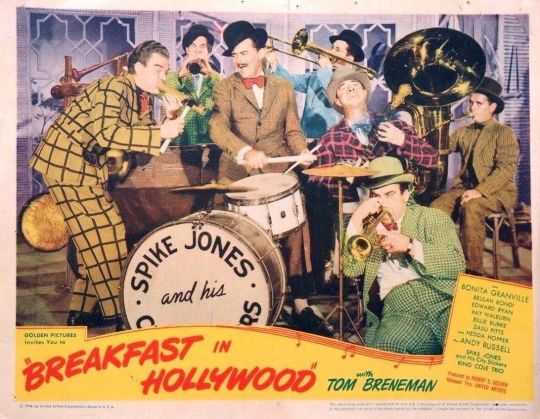




Breakfast in Hollywood (The Mad Hatter) (1946) Harold D. Schuster
September 4th 2022
#breakfast in hollywood#the mad hatter#1946#harold d. schuster#tom breneman#bonita granville#beulah bondi#edward ryan#zasu pitts#raymond walburn#billie burke#hedda hopper#andy russell#nat king cole#spike jones#tom breneman's breakfast in hollywood
1 note
·
View note
Text

Raymond Walburn (September 9, 1887 – July 26, 1969)
5 notes
·
View notes
Text

8.26.20
1 note
·
View note
Photo

Jean Arthur and Gary Cooper in Mr. Deeds Goes to Town (Frank Capra, 1936)
Cast: Gary Cooper, Jean Arthur, George Bancroft, Lionel Stander, Douglass Dumbrille, Raymond Walburn, H.B. Warner, Ruth Donnelly, Gustav von Seyffertitz, Walter Catlett, John Wray, Emma Dunn. Screenplay: Robert Riskin, based on a story by Clarence Budington Kelland. Cinematography: Joseph Walker. Art direction: Stephen Goosson. Film editing: Gene Havlick. Music: Howard Jackson
Frank Capra's perennially popular Mr. Deeds Goes to Town currently has an 7.8 score on IMDb and an 91% "fresh" rating on Rotten Tomatoes. So let me cavil a little bit about its psychological dishonesty, namely the scene in which Deeds, engagingly played by Gary Cooper, is subjected to a sanity hearing because of his attempt to give away to distressed farmers the $20 million he has inherited -- a scheme that economically speaking doesn't bear much close scrutiny. Capra (and Robert Riskin, who as writer must bear his share of blame) brings on an "expert," a caricature Viennese psychiatrist, who explains that Deeds suffers from "manic depression," the now-discarded term for bipolar disorder, and exhibits a peaks-and-valleys chart of Deeds's mood swings. It's pretty clear that Capra and Riskin want us to regard this testimony as quackery. But anyone who has dealt with bipolarity, either first-hand or with family or friends, can see the element of truth in the diagnosis. We don't know enough about Deeds's daily life in Mandrake Falls, Vt., where, as the town's Faulkner sisters testify, everyone is "pixilated" but them, to give a confident diagnosis that Deeds is in fact bipolar, and the attempt to use the diagnosis as a smear is reprehensible. But Deeds's decision to refuse legal council at the hearing is the act of someone who really is depressed, and while we are supposed to dismiss as chicanery the attempt to classify his eccentricities -- playing the tuba, sliding down banisters, chasing firetrucks, feeding doughnuts to a horse, and above all wanting to give away his money -- as manic behavior, there's a grain of truth there. Moreover, Deeds does in fact exhibit violent tendencies: witness his punching out the poets who mock his greeting-card verses -- who beats up poets? -- and his assaulting the lawyers at the trial. Capra intends his film as a valorization of small-town virtues against city cynicism, but even that doesn't bear much close scrutiny, especially after the more critical looks at small town life in Sinclair Lewis's Main Street or Sherwood Anderson's Winesburg, Ohio. It has always struck me that Capra was the most empty-headed of the great American directors, making films that annihilate thought, or at least anesthetize it. I like Mr. Deeds Goes to Town more than most Capra films: At its best it's lively and funny, but its worst is pretty annoying and even pernicious stuff.
2 notes
·
View notes
Text
Broadway Melody of 1936 and 1938 Are Playing on December 28 (USA)
Broadway Melody of 1936 and 1938 Are Playing on December 28 (USA)
Broadway Melody of 1936 is playing on Turner Classic Movies at 8:30 a.m. est on Friday, December 28. Broadway Melody of 1938 is playing at 10:30. Both are closed captioned.
Robert Taylor, Eleanor Parker, Jack Benny, Una Merkel; June Knight, Buddy Ebsen, Vilma Ebsen.
Broadway Melody of 1936, 1935, is a confection of a movie, meant to sweeten the lives of Depression weary Americans. It stars the…
View On WordPress
#Binnie Barnes#Broadway Melody of 1936#Broadway Melody of 1938#Buddy Ebsen#Charley Grapewin#Eleanor Powell#George Murphy#Golden Era#handsome#hollywood#Igor Gorin#Jack Benny#Judy Garland#June Knight#MGM#music#musical#nacio herb brown#Raymond Walburn#Robert Benchley#Robert Taylor#roy del ruth#Sid Silvers#Sophie Tucker#tap dancing#TCM#una merkel#vilma ebsen
4 notes
·
View notes




